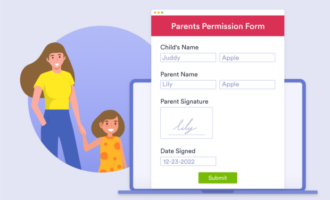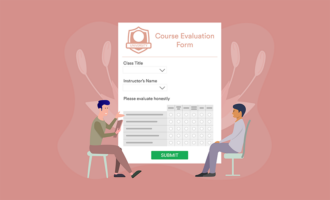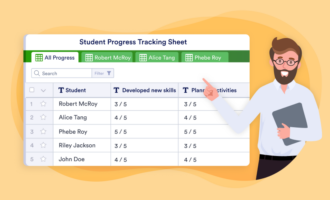Many schools don’t have enough money to provide basic materials — not to mention extracurricular activities or field trips. This is why administrators, teachers, and parents turn to fundraising to supplement school budgets. Fundraisers can be fun, but they also require a lot of hard work, like planning, communication, and relationship management.
With fundraisers, there’s lots of room for disorganization and chaos. But with the right tools and strategies, you can hold effective school fundraisers. Here are four ways to run a successful school fundraising event or campaign.
1. Decide on the type of fundraiser
School fundraisers can take on all shapes. It’s important to set goals and consider what type of fundraiser will best meet the needs of your classroom or school. Ask yourself how much money you hope to raise, when you need it, and the resources you have in place to help execute the fundraiser.
Some school communities have very involved parents who are willing to donate their time to prepare for an event. Others would rather sell things to coworkers and family members — or just write a check. Knowing what works best in your community is key to deciding the type of fundraiser to hold.
“There are lots of products to sell: candy, gift wrap, cookie dough, magazines, candles, and much more,” writes marketing consultant Christy Forhan. “But it’s not just about dollars; it’s also about using your resources wisely so you don’t end up with burned out volunteers or unhappy parents who aren’t likely to support you the next time you come looking for help or money.”
Not many people look forward to fundraising for school expenses. You should consider what’s doable for your volunteers and parents and what will be a good experience for them. If they have a positive experience, they’ll be more likely to contribute both time and money again.
Remember to not only set goals for specific fundraisers but to think of each fundraiser as part of a larger, long-term strategy. This can help reduce the risk of fundraiser burnout and ensure that money is being allotted where it’s needed most.
“Instead of saying ‘we need money for our classroom,’ the more specific you can be, the better,” advises Susan Budak, Katy Dilorio, and Neil Shelby at Accredited Online Schools. “For example, create a list of art supplies, books, etc. that you intend to purchase with the money received.” They say that the context, from each minute detail to the overall picture, is important in creating a successful fundraiser.
Other factors, like how each fundraiser plays a part in the school’s bigger fundraising strategy and how parents and volunteers can contribute, create the foundation for effective school fundraisers.
2. Determine the tools and people you’ll need ahead of time
Once you’ve decided on the type of fundraiser to run, identify the people and tools you’ll need to execute the campaign successfully. It should be clear who is in charge, who is responsible for communication, and what roles you have for other volunteers.
When running an event that largely depends on volunteer hours, consider using online forms for signups. The form can be an easy way to communicate and organize who, for example, is responsible for making cupcakes and who is available for the afternoon dance-a-thon.
If your fundraiser relies on donations or pledges, online forms and payments provide donors a way to contribute that’s both accessible and secure. This saves teachers, administrators, and other volunteers time too. You don’t have to run around asking parents for their pledges — you can set up the system to send automated reminders and watch as the money comes in online.
3. Don’t forget about follow-up
Congratulations are in order for every successful fundraising event. But the fundraiser isn’t over when all the streamers are picked up and the chairs put back in place. It’s now time for the follow-up. There are two important parts to a successful follow-up after a fundraising event or campaign — thank-yous and feedback.
It’s important to give donors and volunteers the appreciation they deserve. School fundraisers seem like something parents shouldn’t have to do throughout the year, but they often do anyway. Make them feel excited about contributing again by showing your gratitude.
If you use lists for signups and donations, thank-you notes are simple. All the names of the people who contributed and what they contributed (time, materials, money, etc.) are all in one organized place. Take the time to go through that list and send thoughtful thank-you notes.
To make improvements for future fundraisers, it’s always helpful to get feedback. Sending volunteers and participants short questionnaires about how the event went, what they liked about it, and what could be improved, can be a great way to guide future events. Some schools rely on fundraisers that are long-standing community traditions, and other schools continually experiment with new ideas. No matter the strategy, guide future fundraisers with the experiences of past events.
4. Be clear about the difference a successful fundraiser makes
Fundraising events bring communities, schools, parents, and students together. They’re also a powerful and necessary way to provide classrooms and students with supplies, tech tools, and extracurricular activities.
But they require a lot of energy, and it’s easy to get discouraged. Remember why you’re doing the fundraiser — to provide excellent educational experiences for our children and students. Emelina Minero at Edutopia also reminds us to make clear the difference contributions will make to the lives of students. Instead of getting lost in the cupcakes, raffle tickets, or invitations, quantify the impact each donor will make. In addition to stating what you need and why and how much it costs, let potential donors know how many students will benefit from each donation.










































































































Send Comment:
1 Comments:
More than a year ago
Thank you, Kimberley, It's a good article on a school fundraiser. Fundraise organizers like Angel Bins and many others are very dedicated and do the groundwork to raise the money successfully for a cause.